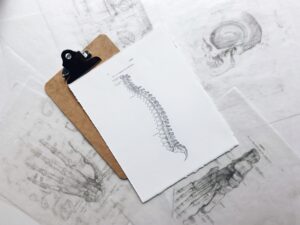If you’re experiencing back pain, it’s important to know what could be causing it. When we think about back pain, constipation is often the last thing that comes to mind. However, if you experience both symptoms simultaneously, then there may be a connection between them! This blog post will discuss how constipation can cause back pain and offer some tips for relieving both of these uncomfortable conditions.
The Importance of Good Digestion for Eliminating Back Pain
During the last 20 years or so, there has been a significant surge in the number of people experiencing back pain. The Center for Disease Control and Prevention reports that one-fourth of Americans suffer from lower back pain each year. Research shows that two-thirds of those people will have back pain at least once during their lifetimes.
Back pain is a significant health problem that affects people of all ages and backgrounds. What’s even more disturbing is the fact that many cases of back pain do not get better within a few weeks or months, which can lead to long-term suffering for those affected.
Many people find that back pain is a recurring health issue, with symptoms showing up throughout their lives.
Of course, the first step toward getting relief from back pain is to determine its cause. Once you have pinpointed the source of your chronic back pain, you can get help for it from a qualified health care provider (see our blog post for tips on choosing one). It’s also essential to address any health issue that has the potential to cause back pain. One of the most common causes of back pain is constipation.
What Is Constipation?
Constipation is often associated with hard, dry stools that are difficult or painful to pass. Another classic sign of constipation is having fewer than three bowel movements per week. However, there are other signs that you suffer from constipation as well. These include:
Feeling bloated or retaining water
Urging to go the bathroom but being unable to pass stool (often referred to as “urgency without success”)
Straining during bowel movements
Those affected by constipation may also experience abdominal pain, bloating, and nausea. If left untreated, constipation can contribute to more serious health complications related to the digestive system, including:
Maldigestion and malabsorption leading to nutritional deficiencies (such as anaemia)
Anal fissures and haemorrhoids
Diverticulosis and diverticulitis (often referred to as “pouches” or protrusions on the inside of the large intestine)
Other systemic diseases, such as irritable bowel syndrome and inflammatory bowel disease.1-3
A Closer Look at How Constipation Causes Back Pain
Back pain and constipation go hand-in-hand in many cases. Why is this the case? In most instances, back pain is treated with a combination of medications and lifestyle changes (that often include physical therapy). However, if your constipation isn’t adequately addressed, it will have a negative impact on your treatment plan for back pain.
For example, consider the following:
Many medications used for back pain are associated with constipation as a side effect. These include narcotic painkillers (such as codeine and oxycodone), antidepressants, antacids, blood pressure medications, insulin drugs, and sedatives.4-8
If you are taking one of these medications and suffer from constipation, you are likely to find that your back pain worsens. While this is only a temporary aggravation for most patients, it’s important to talk with your health care provider about how to address the problem. The good news is that there are many ways you can avoid or treat constipation while taking one of these medications.
Some of these include:
- Drinking plenty of water (eight to ten 8-ounce glasses per day) and other fluids.
- Eating high fiber foods such as bran, oatmeal, wheat germ, flaxseed and nuts.
- Taking fiber supplements in the form of psyllium or methylcellulose.
- Exercising moderately for at least 30 minutes per day.
- Learning to relax and breathe more deeply.
- Incorporating relaxation techniques into your daily routines, such as meditation or yoga.
For more tips on handling constipation while taking these medications, read “Constipation and Low Fiber Diets in the Elderly”.
On the other hand, if you suffer from constipation but do not take one of these medications, it is possible for your body to become “backed up” and to put pressure on your spine. This will increase pain and discomfort in your back and abdomen. In other words, chronic constipation can cause a domino effect that leads to increased back pain.
Conclusion
If the problem persists, call now for help with constipation treatment. Give us a call 205-637-1363 and schedule an appointment.








